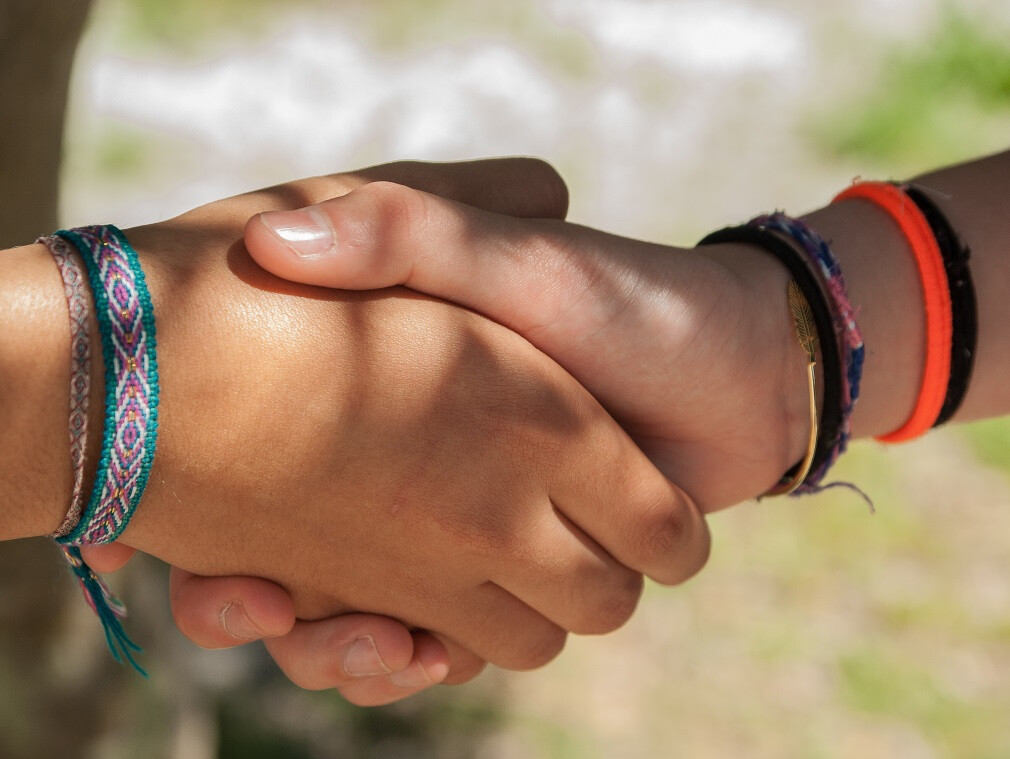The Virtue of Courtesy

A virtue is a habit of goodness. Courtesy is being thoughtful of others. To build a habit of thoughtfulness towards others is connected to the use of proper etiquette and manners. These are the niceties that can fall off when we get stuck in our own heads and not consider “the other.” Sometimes when I take a step back and watch the world, I start to think that a certain level of courtesy towards others has fallen off or may have even disappeared. I only need turn on the television and see the lack of courtesy play out in nearly everything in sight. There is a certain level of anger and rudeness that has come to be the norm. Many times, I find that, as Catholics, we are called to be countercultural. We are called to stand apart from the status quo in the way that Jesus did. Therefore, it is important to us in our work with the students that we teach and remind students of good manners, of proper courtesies, of respect. We have found that when the students get comfortable with their surroundings, manners and the level of respect shown toward one another starts to drop. We can’t let that happen because courtesy is a virtue. I’d like to revisit some common courtesies that every child should be able to do unprompted simply because they have developed the habit:
- Practice listening. Skills of a good listener include giving proper eye contact by looking the speaker in the eye when they are speaking, ask polite questions to make sure you are understanding what you are hearing, when they finish speaking take time to repeat what was shared so that the speaker may be affirmed. We often have to remind children to wait their turn to talk. No one should interrupt conversations unless there is an emergency. Likewise, it is important to mind word choice and tone. This is something we work very intentionally on with the students.
- Practice how to introduce someone. Always start by sharing the name of the older person with that of the younger person and then vice versa. If you can’t tell, make a guess. Never ask a person their age.
- Strive to exercise manners by saying “Hello” loudly and with good eye contact when greeting or encountering other people. Be sure to say “please”, “thank you”, “you’re welcome”, “may I?”, “excuse me”, and other courtesies on a regular basis. We connect this with the first point of giving good eye contact. It is rude not to acknowledge another person especially if they are speaking to you. Jesus is in that other person. I would like to think we would acknowledge Jesus in passing so why not acknowledge another person, right?
- Clean up after yourself as it is important to leave a place better than how you found it. Mother Teresa often shared that she did not love doing dishes, but did the dishes with love for the person that would use it after her. What a great mindset to have in striving to live a life of charity.
- Practice proper meal etiquette: wait for everyone to be served before eating, place a napkin on your lap, use proper utensils, keep your elbows off the table, take small bites, chew with your mouth closed, when leaving the table offer to take things or get things for others, and clean up when you are finished. It is also a good idea to wait until everyone is finished eating before leaving the table.
- Have a conversation between members of your family from different generations. What are some social etiquette practices that have started in the last generation and some that have fallen to the wayside? Should they return? Determine which you might like to revive. As an example, opening a door for a woman. Shouldn’t we be holding doors open for everyone?
- Take time to write a thank you note when someone extends a kindness towards you especially in the form of a gift. Be sure to express why you are grateful for their kindness.
As you get together with family and friends this holiday season, might I suggest using this as an opportunity to have your children practice some common courtesies. Children have to be taught politeness and respect. Children don’t just pick it up. It takes time and practice. We can’t expect our children to be polite on special occasions if they are not required to be polite in every day circumstances. Habits take time and practice. For more ideas for how to build a habit of courtesy and other parenting tips, those shared here are from a text titled Ages and Stages: Tips and techniques for building your child’s social, emotional, interpersonal and cognitive skills by Dr.
Charles E. Schaefer and Theresa Foy DiGeronimo (2000).
